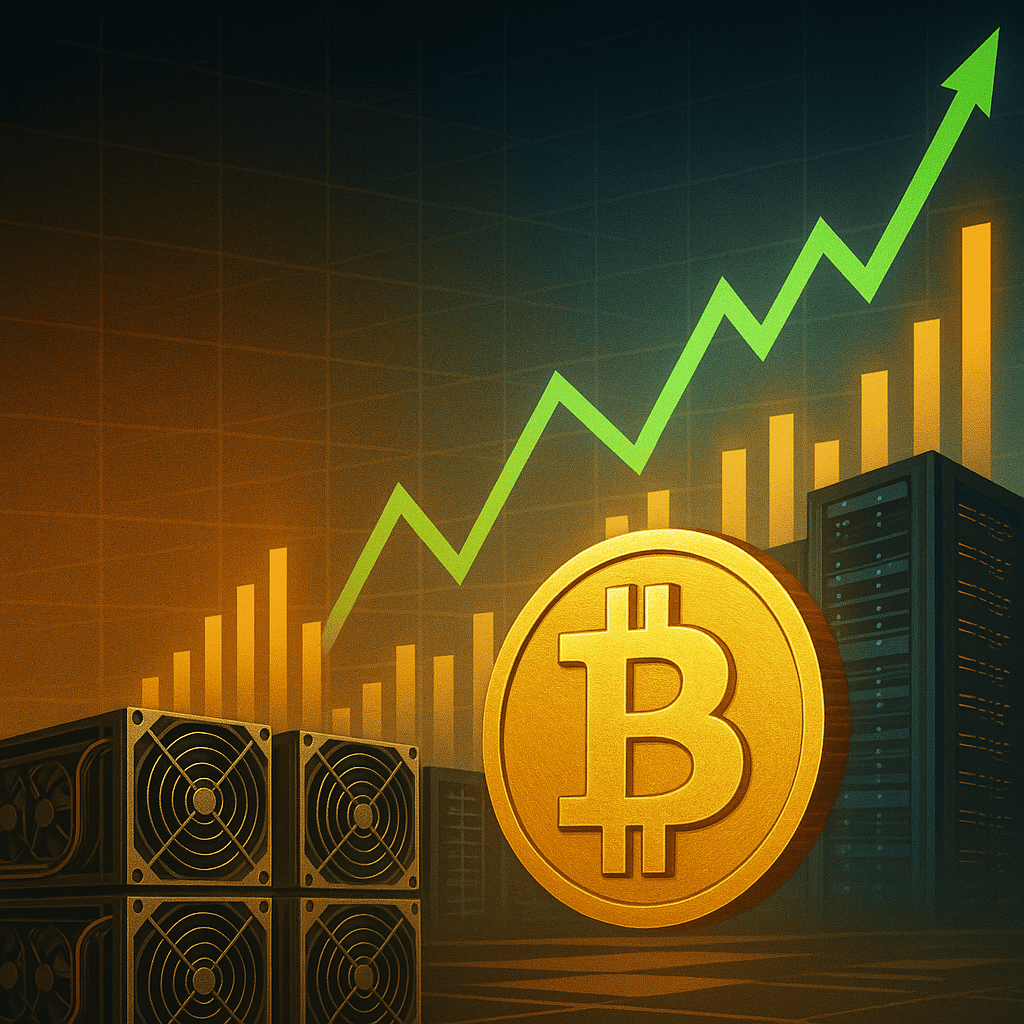
Bitcoin’s surge past $126,000 has ignited a powerful rally across mining stocks. Market favorites such as CleanSpark (CLSK), Marathon Digital (MARA), Riot Platforms (RIOT), and Hut 8 (HUT) are up between 10–25% in a single week, reflecting renewed optimism about profitability and institutional adoption. With the Bitcoin network difficulty at record highs, the market now favors miners with scale, efficiency, and strong treasury management.
🔍 Top Public Bitcoin Miners — September 2025 Snapshot
| Company | Ticker | Hashrate (EH/s) | Avg. Mining Cost (USD/BTC) | Monthly BTC Output | BTC Holdings | Market Cap (USD) | Key Strength |
|---|---|---|---|---|---|---|---|
| CleanSpark | CLSK | 26.1 | ~$38,000 | ~700 | 6,800+ | $8.4B | Efficient expansion, renewable energy focus |
| Marathon Digital | MARA | 33.2 | ~$41,000 | ~830 | 18,200+ | $12.9B | Strong reserves, high uptime, low debt |
| Riot Platforms | RIOT | 25.4 | ~$40,500 | ~610 | 9,900+ | $9.1B | Cheap Texas energy contracts, scaling HPC |
| Hut 8 Mining | HUT | 12.7 | ~$43,000 | ~350 | 7,200+ | $3.2B | Solid treasury, exploring AI data center model |
| Bitfarms | BITF | 9.8 | ~$44,500 | ~280 | 4,100+ | $1.9B | Growth in Paraguay & U.S., AI diversification |
| Cipher Mining | CIFR | 12.3 | ~$42,800 | ~310 | 5,400+ | $2.4B | Expanding Black Pearl site, hybrid HPC mining |
⚡ Analysis
The most profitable miners—like CleanSpark and Marathon—maintain wide margins thanks to scale and low-cost renewable energy. Their access to efficient S21 and M66 ASICs allows them to offset rising difficulty. Riot and Cipher are positioning themselves strategically by linking traditional Bitcoin mining with AI/HPC hosting, a trend gaining momentum since mid-2025. Hut 8’s focus on AI-ready data centers also diversifies risk away from pure crypto dependence.
However, this outperformance comes with high beta risk. Historically, mining stocks amplify Bitcoin’s moves by a factor of 2–3×. A 10% drop in BTC could wipe out 20–30% of miner equity value. Rising energy taxes in the U.S., potential regulatory tightening in New York and Canada, and ongoing hardware bottlenecks could also weigh on margins.
Despite these risks, long-term investors see mining firms as strategic energy-technology assets, not just speculative plays. Their growing role in grid stabilization, AI computing, and energy arbitrage could make them a structural part of the digital economy. If Bitcoin holds above six figures and institutional flows persist, miners may experience a new valuation era—less as “digital gold diggers,” and more as infrastructure providers powering the next generation of computation.
